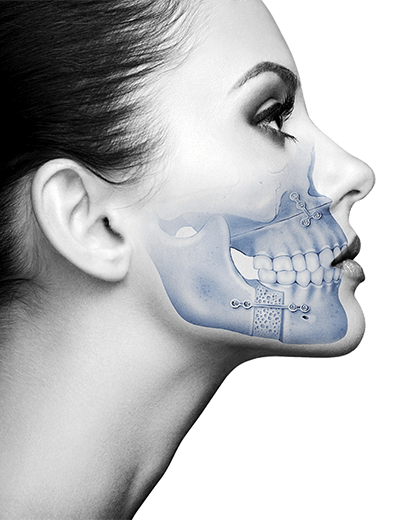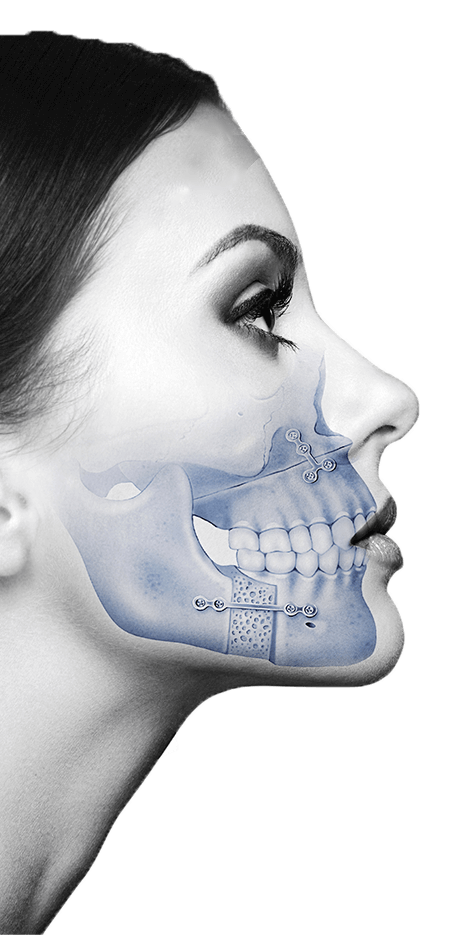Today we want to share with you some reasons to undergo orthognathic surgery that our patients have shared with us over the years:
- Chewing
Generally, orthognathic patients have occlusion problems, since their jaws do not develop correctly, and many of them (especially those who suffer from open bite) end up being able to chew only with the posterior molars, which makes eating a very arduous job and that in the long run can cause digestive problems.
- Difficulties in talking
The malocclusion can cause lisp or elocution difficulties in the speech of a person.
- Spitting
People suffering from prognathism, or bite Class 3, have the jaw more developed than the maxilla, so their mouth remains open most of the time. Consequently, the saliva accumulates in the lower part of the mouth, and when speaking, the saliva is projected along with the air that we expel during the elocution, which can be quite embarrassing.
- Open mouth
Given that the jaw and maxilla do not fit properly, the mouth of many orthognathic patients, 'hangs' open unless they make a conscious effort to keep their mouths closed.
- Breathing
With mouth constantly open, many orthognathic patients end up breathing through their mouths instead of through the nose, leading to breathing problems, especially when sleeping.
- Side profile
Facial appearance affects a person's confidence in a very real way. When someone is not comfortable with their side profile, they end up smiling less, and become very aware of their appearance at all times. There is no shame in wanting to feel good about yourself.
- Pain
Whether in the area of the ear, jaw, head or neck, malocclusion or bruxism can cause temporomandibular joint disorders, which causes constant pain in the head and neck area. In many cases, orthognathic surgery is the solution for these pains.
- Future Complications
People with non-aligned jaws (especially patients with retrognathia, or Class 2), are prone to bruxism and develop sleep apnea, a real danger to one's health. Although not all patients suffer from them at the time of surgery, 2-3 weeks of recovery is a small price to pay to avoid years of discomfort in the future.
If you suffer from any of these problems, orthognathic surgery may be the treatment indicated in your case, contact us to arrange a first exploratory visit, and stop wondering.
Video: Orthognathic surgery: aesthetic or functional surgery?








